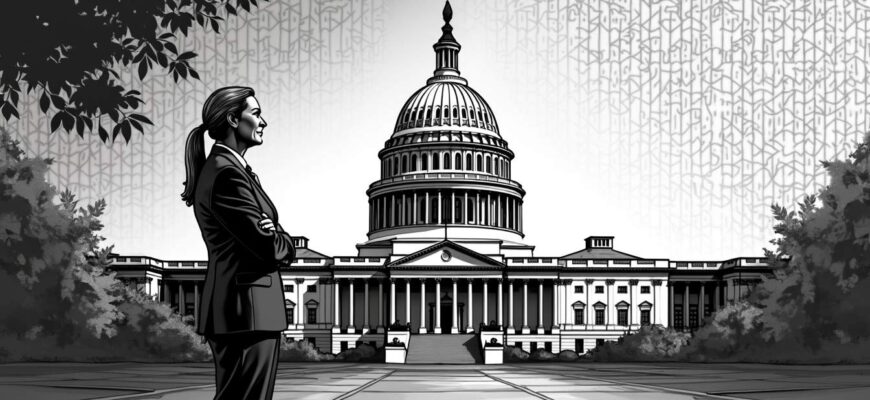The U.S. Senate has officially launched a cryptocurrency subcommittee led by Senator Cynthia Lummis. This move could significantly impact the regulatory landscape for digital assets in the U.S. and beyond. With the global crypto market’s eyes on these developments, we might be witnessing the start of something pivotal for crypto and banks.
A New Chapter in U.S. Crypto Regulation
This new subcommittee is the first of its kind for the Senate Banking Committee, which is chaired by Tim Scott. It seems to mirror what Representative Patrick McHenry did in 2023 with the Republican Financial Services Subcommittee. The focus will be on the fast-evolving digital asset space, which includes Bitcoin, blockchain technology, and the broader implications of artificial intelligence in finance.
Senator Tim Scott, who has taken charge of the Senate Banking Committee, envisions this as an opportunity to shape the future of cryptocurrencies in U.S. policy. It’s interesting to note that this announcement comes right after the Republicans regained control of the Senate, suggesting a potential shift in how digital assets are perceived and regulated.
Cynthia Lummis, a well-known proponent of Bitcoin, is expected to chair the subcommittee, pending the green light from the Banking Committee. This gives her a platform to advocate for crypto interests within the legislative framework. The vote to confirm her and other members of the subcommittee is set to happen next Thursday, aligning with the nomination hearing for Scott Turner, the Trump administration’s nominee for HUD Secretary.
Several Republican senators are anticipated to join this subcommittee, including Bernie Moreno (Ohio), Dave McCormick (Pennsylvania), Thom Tillis (North Carolina), and Bill Hagerty (Tennessee). Moreno and McCormick have notably received substantial support from the crypto sector, indicating their pro-crypto stance.
Limelight on Regulation and Innovation
The subcommittee aims to create regulations that not only protect consumers but also promote innovation. Senators involved are looking to carve out a clear and open space for digital currency development, ensuring the U.S. stays competitive in this burgeoning digital economy. While other countries are exploring their own regulatory frameworks for crypto, this could be a crucial step for the U.S. to maintain its position in the global crypto market.
The main goal is to create a regulatory structure that delineates whether cryptocurrencies fall under the category of securities or commodities. The ongoing battle between the SEC and CFTC has left a gray area that this subcommittee aims to clarify. The Financial Innovation and Technology for the 21st Century Act (FIT21) and other legislative proposals will be focal points, potentially paving a clearer path forward for the industry.
The integration of digital assets into mainstream finance is expected to accelerate, possibly enhancing global acceptance of cryptocurrencies. As U.S. regulatory clarity and support grow, other nations may be prompted to adopt similar frameworks, leading to a more cohesive global financial ecosystem.
The Challenges Ahead
While the creation of this subcommittee is a step toward clearer regulation, it raises questions about market volatility and the risks associated with digital assets. Yet, proponents argue that thoughtful regulation could lead to a more stable environment for crypto.
For instance, Lummis’s proposal for a Bitcoin reserve has sparked varying opinions, with some viewing it as beneficial for the U.S. economy and the digital asset ecosystem. The subcommittee’s decisions will be critical in shaping the future of crypto in the U.S.
Considering the U.S.’s significant role in global finance, its regulatory decisions could set a precedent for other nations. Establishing a supportive regulatory framework in the U.S. could encourage other countries to adopt similar measures, influencing global crypto regulation standards.
Summary
In essence, the U.S. Senate’s crypto subcommittee is on the brink of redefining the regulatory landscape for digital assets. The implications could extend beyond the U.S., potentially influencing global standards and integrating crypto into mainstream finance. As the subcommittee gets underway, all eyes will be on its actions and decisions, which may set the stage for a new era in crypto regulation.








